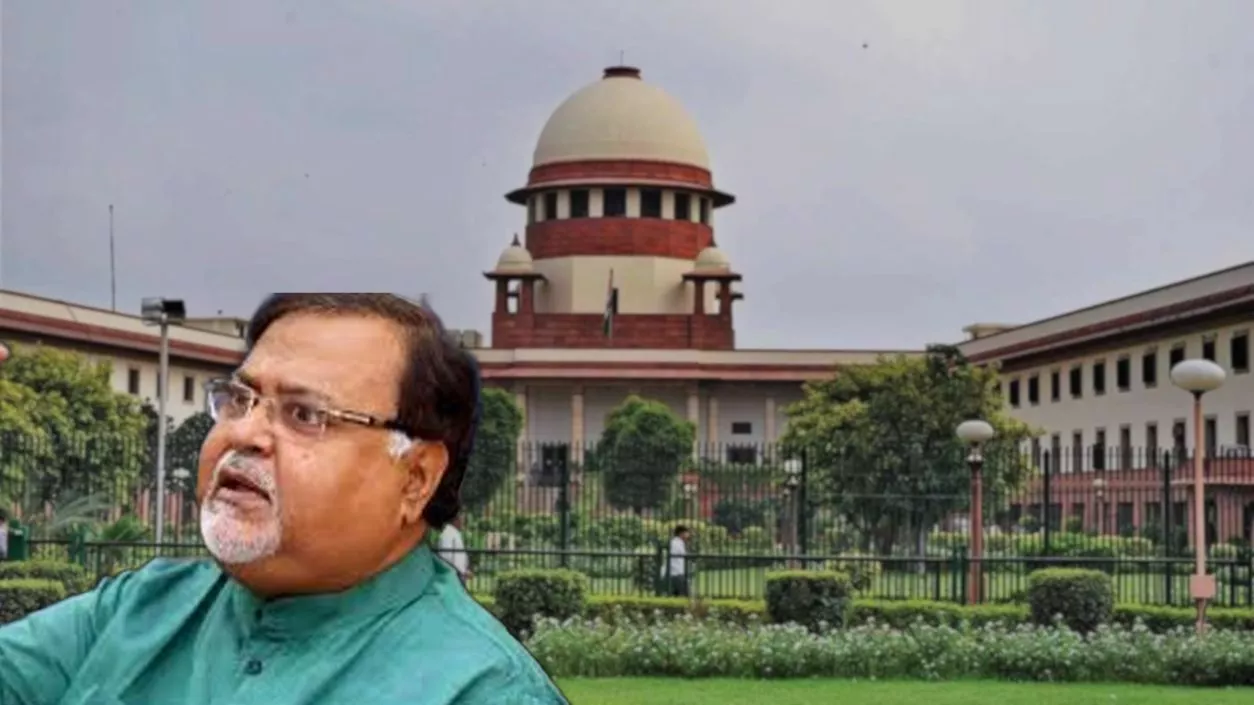.gif)
.gif)

The Supreme Court of India has reserved its decision on the bail plea of Partha Chatterjee, the former Education Minister of West Bengal, in a money laundering case connected to allegations of irregularities in the recruitment of teachers and other state government employees. Chatterjee was arrested in July 2022 by the Enforcement Directorate (ED), which has been investigating claims of bribery in recruitment processes for primary and secondary teachers, as well as Group C and D government posts.
The ED’s investigation revealed the seizure of ₹50 crore in cash, along with jewelry, from the residence of Arpita Mukherjee, a close associate of Chatterjee. The agency also recovered additional sums of money from properties linked to a company allegedly controlled by Chatterjee. Chatterjee is facing multiple charges, including money laundering, criminal conspiracy, and corruption under the Prevention of Money Laundering Act (PMLA). The CBI is also conducting a parallel investigation related to bribery in recruitment. The charges stem from claims that Chatterjee used his position to facilitate illegal payments for securing jobs in the education sector and other state departments.
During the hearing, Chatterjee’s lawyer, senior advocate Mukul Rohatgi, argued that the money seized by the ED did not belong to Chatterjee personally but was linked to a company of which he was not a director. The bench of Justices Surya Kant and Ujjal Bhuyan countered, stating that Chatterjee had control over the company. The court pointed to the purchase of property jointly by Chatterjee and Arpita Mukherjee, suggesting that Chatterjee’s involvement in the financial dealings could not be dismissed. Additionally, the court referred to evidence showing that "dummy" individuals were used to control the companies in which Chatterjee had significant interests.
The ED has continued its investigation, alleging that Chatterjee’s role as a minister enabled him to manipulate the recruitment process in exchange for bribes. The money seized from the properties linked to Chatterjee is believed to have been part of the proceeds from these alleged corrupt activities. The ED has also expressed concerns that Chatterjee could tamper with evidence or influence witnesses if granted bail, particularly given that key witnesses, including Arpita Mukherjee, have raised safety concerns regarding their association with him.
In his bail petition, Chatterjee cited his prolonged detention, having been in jail for over two years, and stated that the trial was unlikely to start in the near future. His lawyer emphasized that other individuals accused in the case had been granted bail, and Chatterjee should be granted similar relief. However, the court dismissed the argument of parity with other accused, noting Chatterjee’s prominent role as a minister and his influence over the recruitment processes. The bench remarked that Chatterjee's position could not be compared with those of other accused.
The Supreme Court also heard arguments related to the progress of the investigation and the safety of witnesses. The ED urged the court to deny bail, arguing that releasing Chatterjee could interfere with the ongoing investigation and trial. The court remarked that it would consider whether granting bail would hinder the investigation or trial before making a decision. The judgment has been reserved, and the court will deliver its verdict soon.